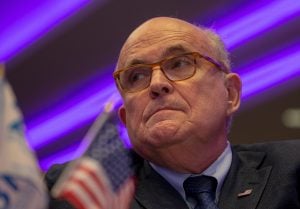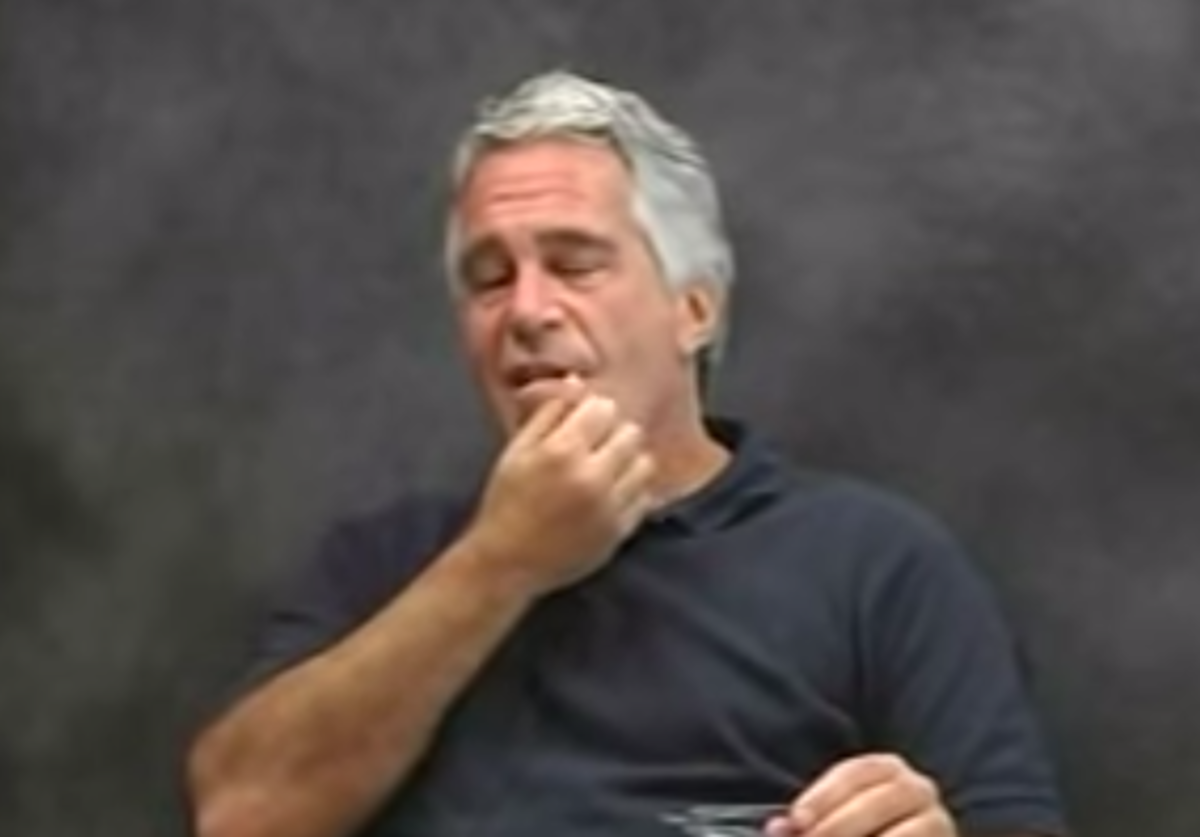(Photo by Mark Wilson/Getty Images)
It can be very hard to get Americans to pay much attention to anything going on overseas, excepting, occasionally, when our military first starts blowing up something new in the great vague beyond out there. Still, that’s not going to keep me from trying. Like again and again, even well after I should have learned my lesson.
Anyway, as I write this, Russian lawyer and anticorruption activist Alexei Navalny continues his struggle against authoritarian strongman Vladimir Putin from the confines of a Moscow jail cell. If you haven’t been following this, last year Navalny was poisoned with Novichok — a Soviet-era nerve agent that would be very difficult for anyone outside the highest levels of the Russian government to acquire. Navalny almost died, but, once he regained consciousness, he didn’t waste time during his five-month recovery in Germany. Instead, Navalny assumed a secret identity in a clandestine sting operation to trick one of the would-be assassins into confessing his role. Then, rather than staying where he was or going into hiding or just getting out of the dangerous field of criticizing Putin, Navalny ignored the Kremlin’s threats that he would be arrested on bogus charges the moment his plane touched down, and flew right back into Russia, where he was arrested on bogus charges the moment his plane touched down.
Boy, I can’t wait until this comes out as a great critically acclaimed movie that’s ignored by audiences in favor of Fast & Furriest 2029: There’s No Rule That Says Air Bud Can’t Drive. Seriously though, Alexei Navalny is a f*cking hero, and right now thousands of Russians are risking their own freedom to try to ensure that his story, and Russia’s story writ large, has a happy ending.
Last Saturday, thousands of Russians turned out in about 100 cities and towns across Russia’s nearly a dozen time zones to call for Navalny’s release and an end to kleptocratic rule in the country. In Moscow alone, at least 40,000 individuals joined the rally, according to estimates from Reuters. Russia’s Interior Ministry responded with the signature tactic of the Putin administration, lies, and said the Moscow protesters actually numbered only 4,000 — which, if even remotely accurate, would have made the approximately 1,360 arrested by Moscow police pretty impressive. More protests are planned for next weekend.
The protests in Russia stand in stark contrast to the situation with the pro-authoritarian mob that stormed the U.S. Capitol three weeks ago. The U.S. insurrectionists were the ones peddling lies in that situation, not the government, which, except for the president, repeatedly told the truth that there was zero evidence of widespread election fraud. The Russian protesters are calling out for real democracy, whereas the American rioters were demanding that real democracy be overturned so that Donald Trump could remain in office. The crackdown on the Russian protesters was swift, fierce, and unjustified, whereas the response against the American domestic terrorists has been unenthusiastic (weeks after the fact, just 135 have been charged with mostly minor crimes for storming the U.S. Capitol).
Moreover, Navalny led from the vanguard, was the first ready to suffer for his activism, and bravely looked death itself in the face in his efforts to secure a more just society for Russians. Trump, on the other hand, after saying to his Capitol-bound mob (from behind a pane of bulletproof glass) that “after this, we’re going to walk down — and I’ll be there with you,” scurried away and hid at the White House, before later ceding all responsibility, willing to personally risk nothing in his futile attempt to salve his ego at the expense of American democracy.
Sometimes, being an American feels like living in season two of Game of Thrones, when all the Qartheen are blathering on about Qarth being “the greatest city that ever was or will be.” That’s what we sound like when we’re always saying that America is the greatest country in the history of the world. At times, America isn’t that great at all. It’s flawed. It’s always incomplete. The moment we succumb to the temptation to just unthinkingly wave little flags at the expense of constantly doing the hard work of forming a “more perfect Union” is the moment we’ll lose everything that does make America special.
As Americans, it’s important to voice support not just for Navalny, but for the thousands of ordinary Russians reaching out desperately, at great personal risk, for freedom. But it’s also wise to seize upon this as a moment of national reflection, to put recent events in context and to learn from them. Right now, at least, a good number of Russians actually seem to have something profound to teach Americans about true patriotism.
Jonathan Wolf is a civil litigator and author of Your Debt-Free JD (affiliate link). He has taught legal writing, written for a wide variety of publications, and made it both his business and his pleasure to be financially and scientifically literate. Any views he expresses are probably pure gold, but are nonetheless solely his own and should not be attributed to any organization with which he is affiliated. He wouldn’t want to share the credit anyway. He can be reached at jon_wolf@hotmail.com.














 Jordan Rothman is a partner of
Jordan Rothman is a partner of 

